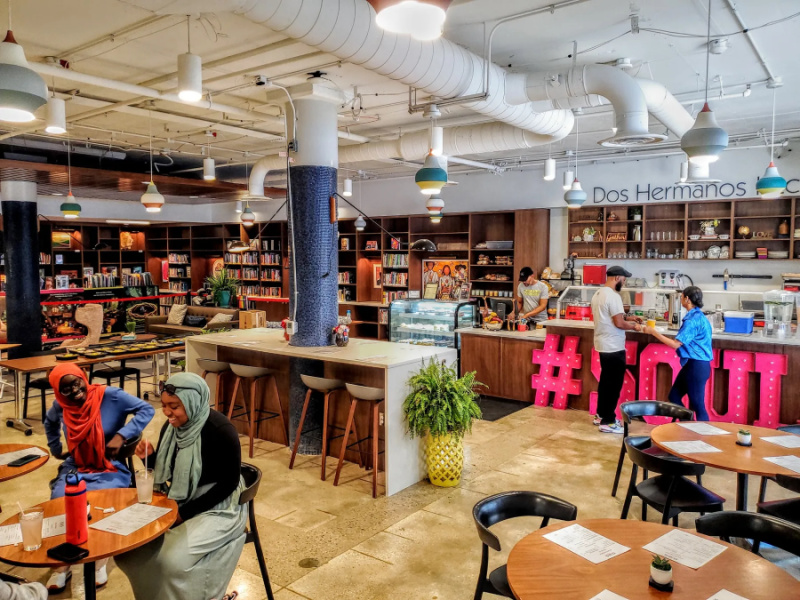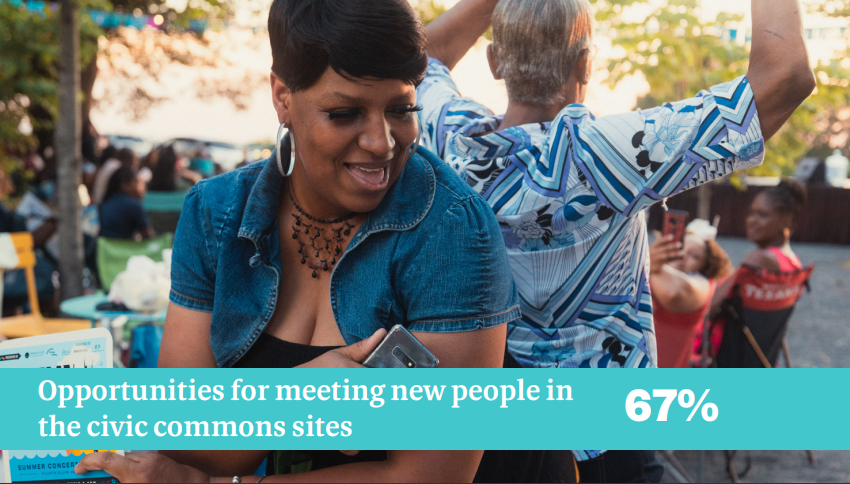Libraries Play a Role in the Civic Commons | Editor's Note
A national network of organizations revitalizing communities through public spaces, Reimagining the Civic Commons offers helpful information for libraries to connect their efforts to larger goals, as well as to the work of their neighbors.
 |
| Cossitt Library, Memphis Public Libraries |
I find connections to libraries, with even more frequency than you might imagine for the editor of this publication.
From a personal vocation, gardening—“Seeding Community and Hope”—to the universal experience of the climate crisis—“Grounded in Their Communities and Hands-On Learning Across Disciplines, Libraries Can Be Critical Partners in Climate Action”—there’s often an association for me, which informs my perspective and the work at hand.
The editors are likewise engaged, as we collectively consider such connections and more in planning SLJ’s 2025 editorial calendar.
Readers are always foremost in mind. We think of you—a lot. What are your needs in your service to kids and teens? Your hopes, dreams, and concerns?
That’s at the core of a lively, ongoing conversation, as we plot coverage, reviews, events, and varied other initiatives, while striving to remain nimble and responsive to the news cycle and providing content to serve readers at their point of need.
Then there are the throughlines: evolving, complex topics that persist in importance, extending beyond any one calendar year.
For one, climate and sustainability remain at the fore, as the informational and educational needs borne of the environmental crisis have a clear library connection.

Lessons from the Commons
Climate is a primary focus of Reimagining the Civic Commons. A national network of organizations dedicated to revitalizing communities through public spaces, RCC received $10 million in funding, the organization announced last month.
Over the next three years, RCC will apply that money in 10 cities, helping local leaders renew civic spaces, such as parks, trails, community centers, libraries, and public gardens. The goal: to counteract social isolation, mistrust in institutions, harmful climate impacts, and economic segregation, disturbing trends afflicting neighborhoods nationwide.
“Public assets haven’t been leveraged in a deep way” toward a solution, says Bridget Marquis, RCC’s director. “Disinvestment over time may point to the problem.”
The capacity of civic institutions to address significant societal problems may not be immediately apparent. Libraries, for example, “possess the physical infrastructure and community relationships to tackle loneliness and social isolation—but they may not view their community engagement work through the lens of public health,” writes Hallie Rich, editor in chief of Library Journal in "Hungry for Connection: Addressing Loneliness Through the Library."
Initiatives like RCC can help stakeholders connect their efforts to a larger goal, as well as to the work of their neighbors. In Memphis, for example, a citywide collaborative sparked by RCC outfitted Cossitt Library with a community-enhancing podcast studio and two performance spaces, and transformed sleepy squares—home to Confederate landmarks and not much else—into verdant, welcoming spaces, joining neighbors in fun activities, from group yoga to Grizzlies playoff parties.
Such efforts carry “a lot of potential as a collection of assets,” notes Marquis.
The RCC approach, highly local in practice, is good information for libraries, with insight into partnering successfully around a shared set of defined goals. Also of interest, RCC’s method for measuring outcomes - see the folllowing resources.
Resources from Reimagining the Civic Commons
- Measuring the Civic Commons
A data-driven framework for demonstrating the impact of strategic investments in public spaces. - DIY Measurement Tools
Available to any civic asset that wants to start measuring towards specific goals, "Measure What Matters" is a DIY toolkit for "capturing and quantifying the beneficial social impacts of a city’s public places." - Final metrics reports from Akron, Detroit, and Memphis.
The gains made in RCC cities around civic engagement, socioeconomic mixing, environmental sustainability, and value creation.


RELATED
The job outlook in 2030: Librarians will be in demand
The job outlook in 2030: Librarians will be in demand
ALREADY A SUBSCRIBER? LOG IN
We are currently offering this content for free. Sign up now to activate your personal profile, where you can save articles for future viewing






Add Comment :-
Be the first reader to comment.
Comment Policy:
Comment should not be empty !!!